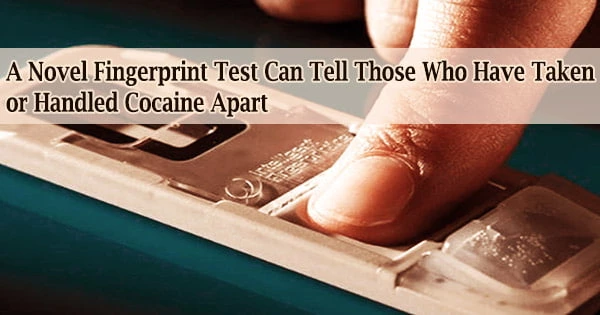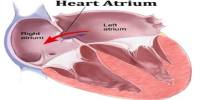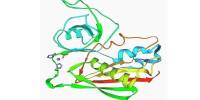Even after washing one’s hands, an experimental fingerprint detecting method can detect cocaine residues on human skin. The test is also capable of determining if a person has actually consumed the class a drug or just handled it.
In addition to the investigation and punishment of crimes like rape, murder, and drug trafficking, forensic science can be used in cases where a criminal has not been committed but a civil wrong has been done, like wilful contamination of the air or water or inflicting industrial injuries.
A publication by the University of Surrey describes a series of studies that show how it is possible to do drug testing precisely and painlessly with a single fingerprint sample. The paper was published in Nature Publishing Group’s Scientific Reports.
Because the legal repercussions of handling cocaine vs ingesting it differs, it is important to be able to distinguish between the two in drug testing. A recent study shows that it is now possible to do this using high-resolution mass spectrometry techniques for the first time.
From anthropology and wildlife forensics to fingerprint and DNA analysis, forensic science encompasses a wide range of fields. Although they come from various fields, all forensic scientists deal with the same problems.
Intelligent Fingerprinting already offers a successful point-of-care fingerprint drug screening system that uses lateral flow assay technology and fluorescence-labeled antibodies to selectively detect particular drugs or their metabolites in eccrine sweat collected from fingerprints. They also provide a fingerprint-based laboratory confirmation service that uses Liquid Chromatography and Mass Spectrometry methods.
The team, which included members from the University of Surrey, Forensic Science Ireland, the National Physical Laboratory, and Intelligent Fingerprinting, collected fingerprints from drug rehab patients who had admitted to using cocaine during the previous day and were seeking treatment.
Each patient’s fingerprints were taken, and after properly washing their hands with soap and water, the participants were requested to provide another set of fingerprints. The collection of samples from a group of cocaine-touching drug non-users was done using the same procedure.
A fingerprint is a great way to test for drugs as it is so quick and efficient to collect. Using our methodology, it is possible to analyze a fingerprint sample for drugs in less than 2 minutes.
Dr. Min Jang
The researchers at Surrey compared the data from the drug non-users who had handled cocaine with that of volunteers who had testified ingesting it using their industry-leading experimental fingerprint drug testing method (based on quick, high-resolution mass spectrometry).
They discovered that a substance called benzoylecgonine, which is created in the body when cocaine is used, is crucial in separating cocaine users from handlers. Even after touching street cocaine and washing their hands, samples from drug non-users did not contain benzoylecgonine.
Dr. Min Jang said: “A fingerprint is a great way to test for drugs as it is so quick and efficient to collect. Using our methodology, it is possible to analyze a fingerprint sample for drugs in less than 2 minutes.”
Dr. Catia Costa from the University of Surrey said: “We are excited about the possibilities for fingerprint drug testing. In addition to illicit drugs, we have found that we can detect pharmaceutical drugs in fingerprints and we are keen to see if we can use this to help patients to check that their medication is being delivered at the right dose.”
Dr. Melanie Bailey from the University of Surrey said: “We think this research is really significant as our laboratory test using high-resolution mass spectrometry can tell the difference between a person who has touched a drug and someone who has actually consumed it just by taking their fingerprints.”
Professor David Russell, Founder and Chief Scientific Officer at Intelligent Fingerprinting, said:
“This University of Surrey laboratory study into cocaine testing using experimental high-resolution mass spectrometry techniques validates the approach Intelligent Fingerprinting took when originally commercializing our portable fingerprint-based drug screening system for use at the point-of-care.”
“Because our commercially available test detects both cocaine traces and benzoylecgonine the major metabolite of cocaine our customers have been successfully using fingerprint-based drug tests since the Summer of 2017 to determine whether cocaine has actually been taken.”
















